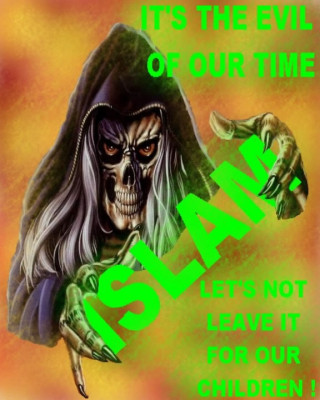A debate is raging in Australia over Islamic ‘culture’ as the ‘Reclaim Australia’ rallies set for April 4, 2015 draw closer. It is strange for us that liberals, Marxists, anarchists and human-rights groups are all pushing for the ‘toleration’ of Islamic values in Australia. The following article has been contributed on Sharia law.
Sharia and ‘Western Values’ , so are they compatible?
The short answer is: almost entirely not.
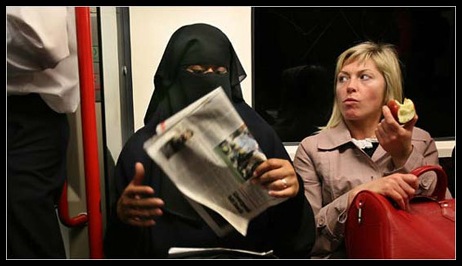
There is almost no point of agreement between the core beliefs of Islamic law and Western values as understood by most people of European descent or living in the ‘West’. Naturally, this statement needs qualifying. The first thing is to define the terms being used. This is typically not done to any useful degree, and people are left trying to compare one poorly understood system with another vaguely expressed one.
This article will mostly discuss Sharia Law.
In doing so, it is necessary to first list those attributes most Westerners can identify readily as being representative of their societies’ core beliefs. To simplify this, and get on to Sharia more quickly, a system that is far less understood by Westerners, let me just make a brief list of some of the critical core values most of us in the West agree to:
Core Western Values
- Individual worth
- Sanctity of human life
- Equality of men and women
- Protection of children
- Protection of the old/weak/disadvantaged
- Right to education
- Compassion and aid for the afflicted
- Honesty in dealings
- Freedom of belief
- Rights of animals
- Conservation of the natural world
And then there are things that are also cause of dispute in our societies; the words have different meanings for liberals (who undermine us) and traditionalists:
Inherent human rights; the rule of law ; the right to fair trial ; the right to vote and seek free representation.
These lists can be extended, or written in a variety of different ways, but it gives a good overall picture of who we in ‘Western’ civilisation think of ourselves as inside our culture. Some items could be joined into one, but I have separated them for ease of discussion.
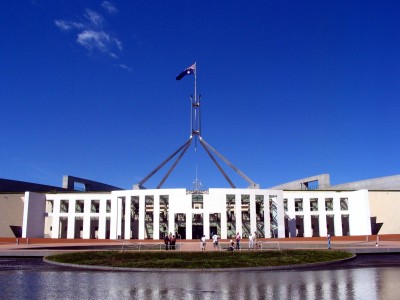
However, there is only one item on the list that is understood in the same way by Sharia Law and Islamic Jurisprudence, that is – Rule of Law.
Like us, they believe that societies must be governed by clear, just and consistent laws, but as we shall see, the concepts of ‘law’ and ‘justice’ in the Islamic world is entirely alien to that which we understand. Everything else on the lists is simply not a part of Sharia.
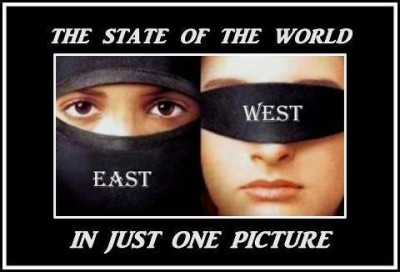
You may be shocked that I have said that only one item is held in common with Islam. Surely that’s not possible, while we can’t have the same view on everything, surely at least some of the basic ideals are more or less the same? After all Islam is a religion, and all religions are at core about justice, peace, etc, aren’t they?
And if you think so it would be an entirely mistaken expectation. Sharia Law sees the world in an entirely, fundamentally different way. I’ll use comparison to the lists above to show this.
But first let’s define Sharia Law.
Sharia law is based on four foundations, the Koran, the Hadith, the Sunna, and Islamic jurisprudence.
The Koran is universally held by Muslims to be the dictated word of God (Allah) and to be in no way available for question or disagreement.
The Hadith are the collected ‘sayings’ of Mohammad, as recited by people who knew him personally. This is not a single text, but several collections, held to be variably accurate. All of the Hadith were collected long after Mohammad’s life, and went through a long process of consideration before acceptance as true and correct, or in many cases just ‘plausible’.
The Sunna is the biography of Mohammad. As Mohammad is universally held by Muslims to be the ‘perfect man’ and the example for all things in life the Sunna has more weight in daily life than even the Koran, which is in any case very difficult to read and generally unavailable to the majority of Muslims, who are in the main – not Arabic speaking. Even Arabic speakers struggle to understand the Koran in its original Arabic, so in fact few Muslims are fully acquainted with the text. The Sunna is accessible, widely known and clearly depicts Mohammad’s life in a great deal of detail (to the minutest mannerism or practice). As the ‘perfect man’ the biography of Mohammad offers the Muslim a clear model for his own life.*
Islamic Jurisprudence is the study and theory of law, that is, thoughts and opinions about law, based on study of the Koran, Hadith and Sunna.
There are two very critical points to be made:
First, Sharia Law is entirely derived from the core texts of Islam and can in no way be separated from them. There can never be any true separation of ‘church’ and state in Islam, as an Islamic state is a direct manifestation of the religion and its laws. Compromise attempts inevitably have ended in violent failure.

Second, the ultimate arbiter in any matter, of any nature, that comes before a Sharia court is Mohammad. His sayings, his acts in life and the Koran he received from Allah are the only means to understand law in Islam. (It is entirely true to say that the key to understanding anything about Islam is to be found in the life and words of Mohammad.)
So, specifically, how compatible or otherwise are Sharia law and Western values? Our list of Western values with Sharia’s position point by point now follows:
Individual worth/ Sanctity of human life/Inherent human rights/ Equality of men and women/ Protection of children

Islam allows slavery (of non-Muslims, as they are not protected under Sharia law), allows polygamy (but not polyandry), rates women at half
the value of men under the law (as a witness before the law, for inheritance, etc), demands 4 witnesses before accepting a claim of rape, makes all women effectively the possession of male members of her family in a number of ways, gives the male head of the family the right to punish or kill any family member according to Sharia principles, stones women alone for adultery (men can have any number of sex partners apart from the 4 allowed wives), allows marriage to pre-pubescent female children, allows forced marriage, allows genital mutilation, forbids homosexuality on pain of death, forbids change of religion on pain of death, allows killing for questioning the Koran, Mohammad or Sharia, and so on.
There is a great deal more than can be said about Sharia’s approach to women.
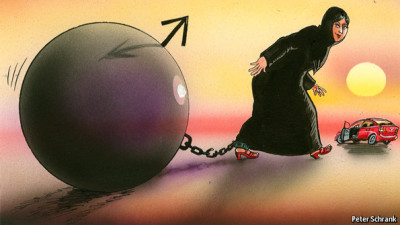
There are simple categories of humans, those who are ‘protected’ (compelled) by Sharia law, and those who are not. However, it must be \noted that Sharia law is not actually a set of rules and laws that ‘protect’ Muslims, they are edicts that they must live by in order to be properly submissive to Allah (the word ‘islam’ means submission). It is a great deal more about telling Muslims how to behave than protecting any
rights. There are a large number of dictates on how a Muslim is to interact with non-Muslims, but non-Muslims have no rights at all under Sharia. However they can be fully punished for any contravention of Sharia law, wherever they may be or live. Killing apostates, homosexuals, Jews, adulteresses, pagans, other non-Muslims, blasphemers, and more is fully allowed under Sharia law.
Mutilations, torture and beatings are among the punishments stated as appropriate for the various crimes under Sharia. Human life only has value if an individual human being is a Muslim and diligently follows Sharia, otherwise they are ultimately without value and subject to death or enslavement. There are in excess of 180 reasons given in Sharia for administering the death penalty. Slavery is explicitly allowed in Sharia law, and is a common practice in many Islamic countries.
Protection of the old / weak / disadvantaged
The elderly are respected, as in most societies, and Muslims are told in the Koran to give alms to the poor. However, there is no specific protection under the law for the physically or mentally impaired – their lives are governed by the patriarch of the family.
Right to a fair trial and representation, and to defend oneself, if accused
Sharia courts do not need to hear from the accused, the accused is not entitled to representation, there is no ‘higher’ court to appeal to. Punishment is draconian from a Western stand-point, with beheading, limb amputation, stoning, crucifixion, hanging, whipping and imprisonment among the options regularly applied. Under Sharia law apostates, homosexuals, unmarried mothers, women who have been raped but can’t produce four witnesses, women who have had sex out-of-wedlock or in adultery, Jews and pagans have no further rights under law and can be dealt with as any Sharia court, mullah or mob decides. Accusation is often sufficient evidence, as there is no concept of ‘presumption of innocence’.
Right to vote and to elect representatives
Representatives are not elected in Islam. Some Islamic countries have some outward form of democratic process, but no one is elected to a position where they can make determinations based on Sharia law, unless they also have clerical status (as is the case in Iran). Only the clergy can judge and proclaim the law, as only they know the Koran, Hadith, Sunna, and Islamic legal theory sufficiently. Although not fully practiced across Islamic countries Sharia claims for itself the absolute right of both judgement and rule.
Ultimately democracy is denounced by Sharia, as no elected non-clerical person can have authority over and above the holy texts and those who make pronouncements from them. Examples of Islamic countries with varying degrees of democratic process tend to suffer from a variety of political and social instabilities due to the underlying tension between modern democratic concepts and Sharia thinking. Voting is not a right under Sharia law.
Right to an Education
There is no right to an education, and while parents are encouraged to educate their children, there is no legal requirement to do so (individual countries may have secular laws about this, but Sharia does not).
Many Islamic societies take the role of women to indicate a lack of need for anything except a very basic early schooling, as their role in the home does not require greater education than this. In extreme examples, as with the Taliban, the education of female children is heavily curtailed in order to prevent any morally corrupting influence.
Likewise, in an extreme application male children may get an education in virtually nothing but the Koran, and this generally means rote memorising of the Koran in barely understood classical Arabic. Indeed many Muslims today are well-educated and educate their children to a high degree, but this is not considered to be a right under law.
Right of Free Expression
Freedom of speech as a right is unknown and anything that can in any way be interpreted as blasphemy, which is anything that questions or may be interpreted as having questioned any part of Islam or Sharia, is punishable.
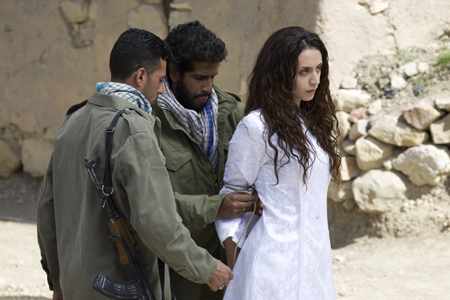
Blasphemy is equated to apostasy in Sharia, which is why so many people are killed for their comments or cartoons – accusation of apostasy frequently equals a death sentence. Free speech implies free thought, and Sharia does not allow free thought.
Compassion and aid for the afflicted
Theological matters take precedence. There is very little activity in the Islamic world to assist communities struggling with the results of warfare, natural calamities or economic crises. Foreign aid is not a common feature of the Islamic world-view.
This lack of apparent concern even for fellow Muslims is probably the result of an inherent fatalism within Islamic thought. Aid to non-Muslims is almost totally unheard of, and would in fact be illegal under Sharia, which forbids giving succour to the enemies of Islam (unless something for the greater Islamic good was to be achieved by the act).
Honesty in Dealings
A Muslim must be truthful in dealing with other Muslims, but is not required to be truthful to non-Muslims, and in fact lying to further the aims of Islam is specifically allowed in the Koran.
This is called taqqiya (which may be translated as ‘holy lie’), and there are rules about when it is acceptable. Unfortunately for us, taqqiya rules are very easy to apply to most interactions with the infidel, and it is impossible to know when a Muslim authority is being truthful or applying the ‘holy lie’ to protect the interests of Islam.
Freedom of Belief
There is no freedom of belief. Non-Muslims living in an Islamic state are doing so under tolerance alone, they have no legal rights to practice a different religion.
Many Islamic states persecute non-Muslims very diligently, others allow some practitioners to exist, in small numbers. The degree of tolerance varies, for example, Egypt has a minority Christian population that frequently experiences persecution, and who are not allowed to build new churches, or renovate crumbling ones without permission, rarely given.
There is a heavy tax that is often employed, the ‘jizziya’, which is dictated by Sharia for non-Muslims. It is not always applied, nor is persecution uniform, but minority religions report varying degrees of persecution and intolerance in every one of the 49 majority Islamic states.
Animal Rights
There is no conception of animal rights in Sharia.
Halal, the determination of which food or food preparation methods are acceptable, is inherently cruel to animals (for example, animals are bled to death slowly to ensure that they have no polluting blood left in them after death).
Conservation of Nature
There are no nature conservation matters covered by Sharia law.
Sharia law is almost entirely only concerned with the proper behaviour of people with respect to the dictates of the Koran and other Islamic texts, and their duties to Allah as laid out in Sharia law. The Koran is largely silent on any matters to do with the natural environment.
Rule of Law
If Allah or Mohammad said it in the Arabian desert in the 7th Century AD then it is the law, everything else is irrelevant.

Sharia dictates even very minor aspects of daily personal and community life, backed by the Koran, the Hadith and the Sunna. Though often applied laxly, Sharia is by its nature strict, inflexible and above debate.
There is no system of checks and balances, in fact most of Sharia law is applied by ordinary people themselves. If they commit acts that to the West seem barbarous or heavy-handed there is no legal repercussion if those acts fall under Sharia precepts.
Hence ‘honour killings’ are common in some parts of the Islamic world, because the father or male family member in authority has the right/duty to apply Sharia law.
While it is true that not all Islamic countries, or individuals, observe Sharia law in every detail, and in many cases do not apply certain aspects of the law or prescribed punishment, these do in fact remain present in Islamic law and can at any time become again part of the normal daily application of the law. Few Islamic states have a significant secular legal system.
Sharia is a closed system, it is not open to discussion or debate, it is fixed and unchangeable, as the Koran, the Hadith and the Sunna are fixed and unchangeable, and Sharia is the sum of these works.
Notes:
One has deliberately used the masculine pronoun, as in no way is the feminine pronoun applicable to the core values of Islam, which direct the affairs of men to a very far greater degree than women.
‘Secular Islam’ is not technically possible. Islam defines everything about all aspects of a person’s life, morality, duties, faith and social behaviour. Sharia is the application of Islam.
There is only one Islam, the Islam of Mohammed and Allah.
